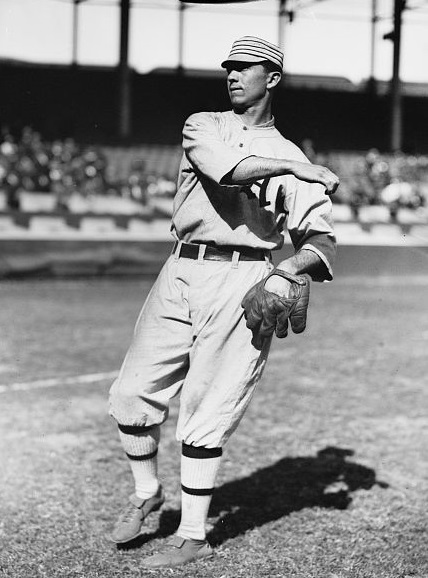Frank "Home Run" Baker
John Franklin Baker was known for his great athletic ability. Nearly a hundred years later, his legacy still leaves a lasting impact on baseball history.
Baker was born on March 3, 1886, on a farm in Trappe, Maryland. He played as a pitcher and outfielder for the Trappe High School Baseball Team. In 1905, he played for the Ridgley Baseball Club, and in 1907, he played with an independent club in Cambridge, Maryland. Connie Mack signed him to the Philadelphia Athletics in 1908 after spotting him play for the Reading Pretzels.
Baker helped the Philadelphia Athletics win the 1910, 1911, and 1913 World Series. He played with the Athletics through 1916, but holding out for a better salary, he sat out the 1915 season and instead played for various town teams, including Trappe and Easton. In 1916, he returned to the majors to play for the New York Yankees. During his time in the major leagues, he appeared in six World Series.
After the 1922 season, Baker gave up major league ball and came home to the Eastern Shore of Maryland. In 1924, he managed the Easton Farmers of the Eastern Shore League. There he discovered future Hall of Famer Jimmie Foxx. He signed Foxx for a short period of time but eventually sold Foxx’s contract to Connie Mack. Baker’s final years were spent working on his family farm. He also worked as a tax collector and supported the local Little League. He was inducted into the National Baseball Hall of Fame in 1955. He died of a stroke on June 8, 1963.
Family Life
Home Run Baker married Ottilie Tschantre, the daughter of a local Swiss jeweler, in 1909. In 1914, they had twin daughters. In 1920, Ottilie died from scarlet fever and Baker took the season off to help raise their twin daughters. Distraught after his wife’s death, he vowed to give up baseball entirely. He did not stay away from the game long, as he returned to the Yankees in 1921. How Frank Earned the Name
“Home Run” Baker
Many believe Frank Baker earned the nickname “Home Run” because he hit two game-winning home runs during the 1911 World Series. However, he had already earned the nickname by 1909 after hitting three home runs in his first few games as a rookie player for the Athletics.

